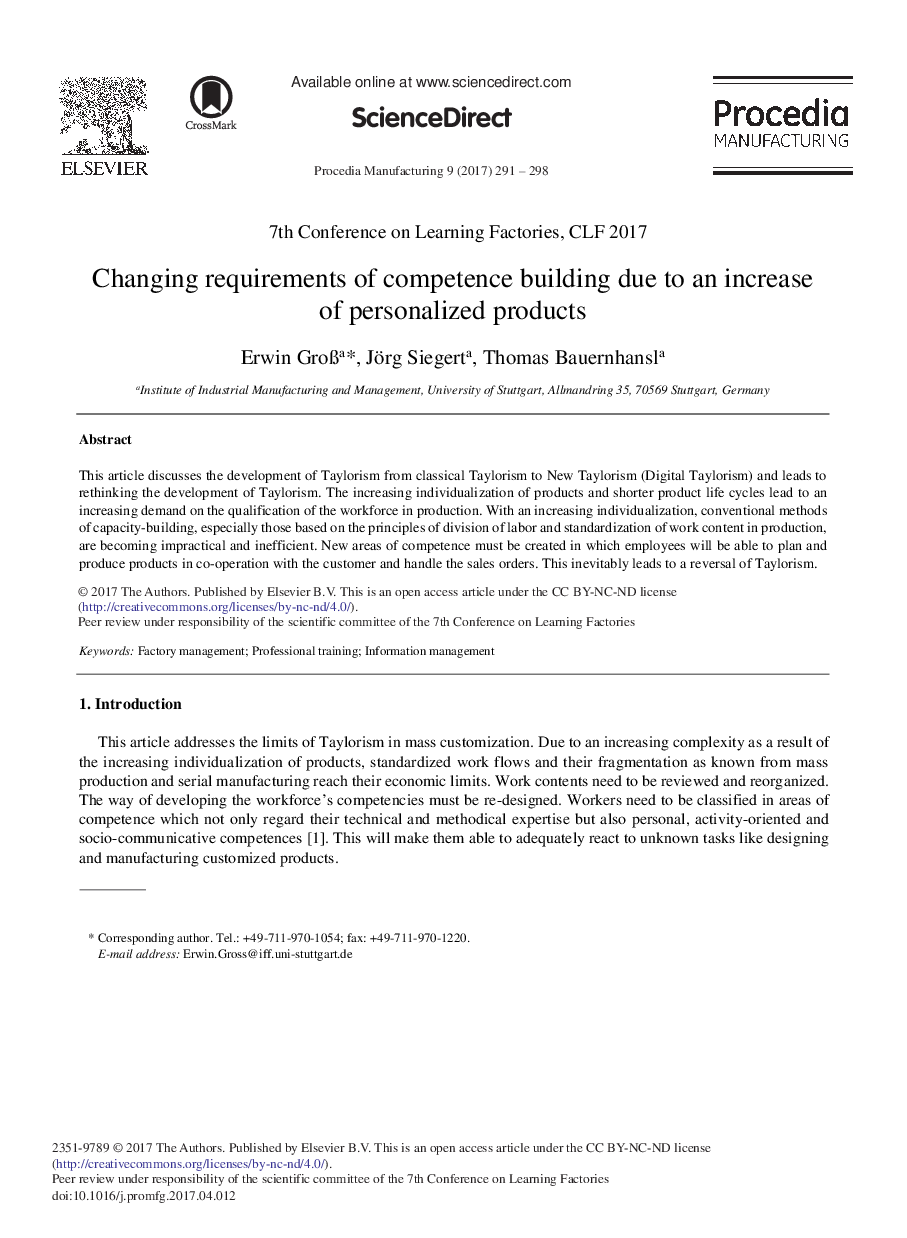ترجمه فارسی عنوان مقاله
تغییر الزامات ساختمان صلاحیت با توجه به افزایش تولیدات شخصی
عنوان انگلیسی
Changing Requirements of Competence Building Due to an Increase of Personalized Products
| کد مقاله | سال انتشار | تعداد صفحات مقاله انگلیسی |
|---|---|---|
| 104630 | 2017 | 8 صفحه PDF |
منبع

Publisher : Elsevier - Science Direct (الزویر - ساینس دایرکت)
Journal : Procedia Manufacturing, Volume 9, 2017, Pages 291-298
ترجمه کلمات کلیدی
مدیریت کارخانه، آموزش حرفه ای، مدیریت اطلاعات،
کلمات کلیدی انگلیسی
Factory management; Professional training; Information management;
ترجمه چکیده
در این مقاله توسعه تیلوریسم از تیلوریسم کلاسیک به تیلوریسم جدید (تیلوریسم دیجیتال) بحث شده است و منجر به تجدید نظر در توسعه تیلوریسم می شود. انطباق فزاینده محصولات و چرخه های کوتاه مدت محصول منجر به افزایش تقاضا برای واجد شرایط نیروی کار در تولید می شود. با انطباق در حال افزایش است، روش های متداول ظرفیت سازی، به ویژه آنهایی که مبتنی بر اصول تقسیم کار و استاندارد سازی محتوای کار در تولید هستند، غیر عملی و ناکارآمد می شوند. زمینه های جدید صلاحیت باید ایجاد شود که در آن کارکنان قادر به برنامه ریزی و تولید محصولات در همکاری با مشتری و رسیدگی به سفارشات فروش خواهند بود. این به ناچار منجر به معکوس تیلوریسم می شود.

